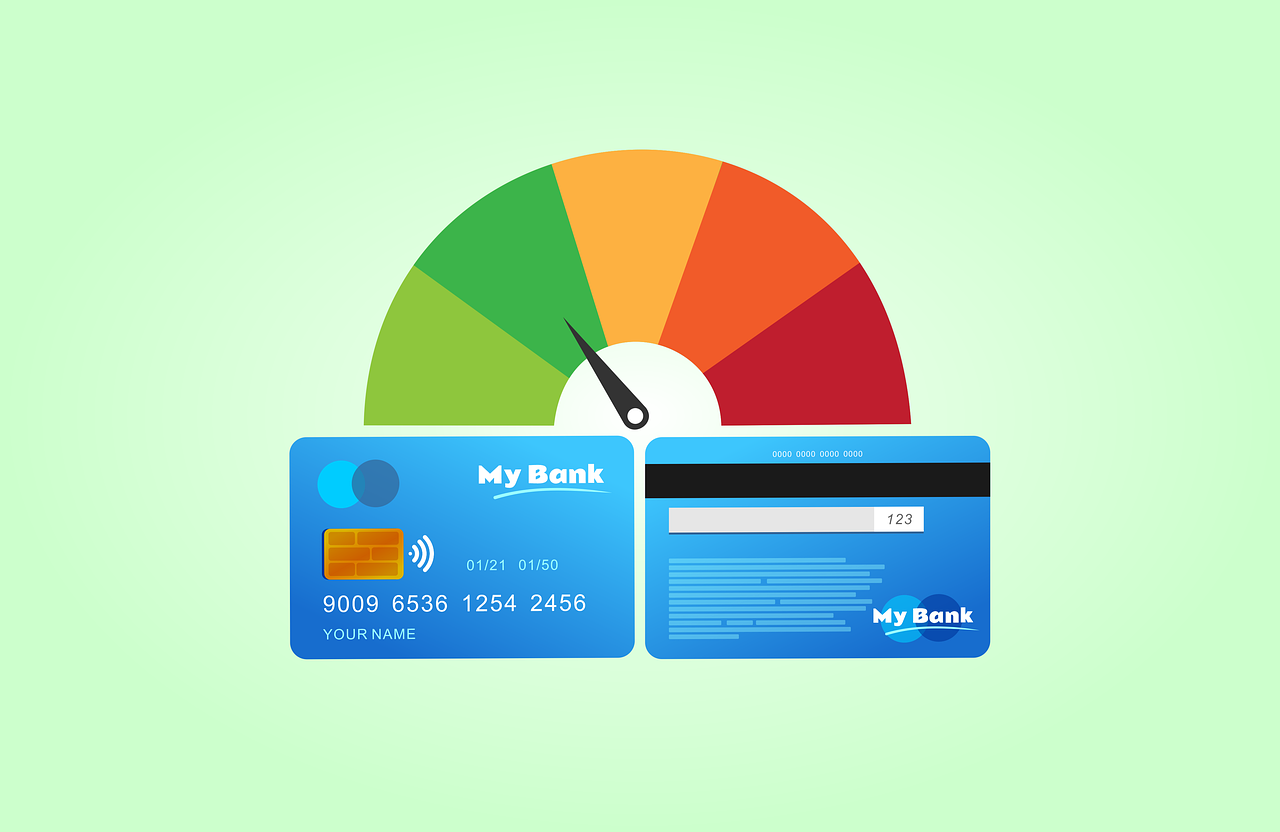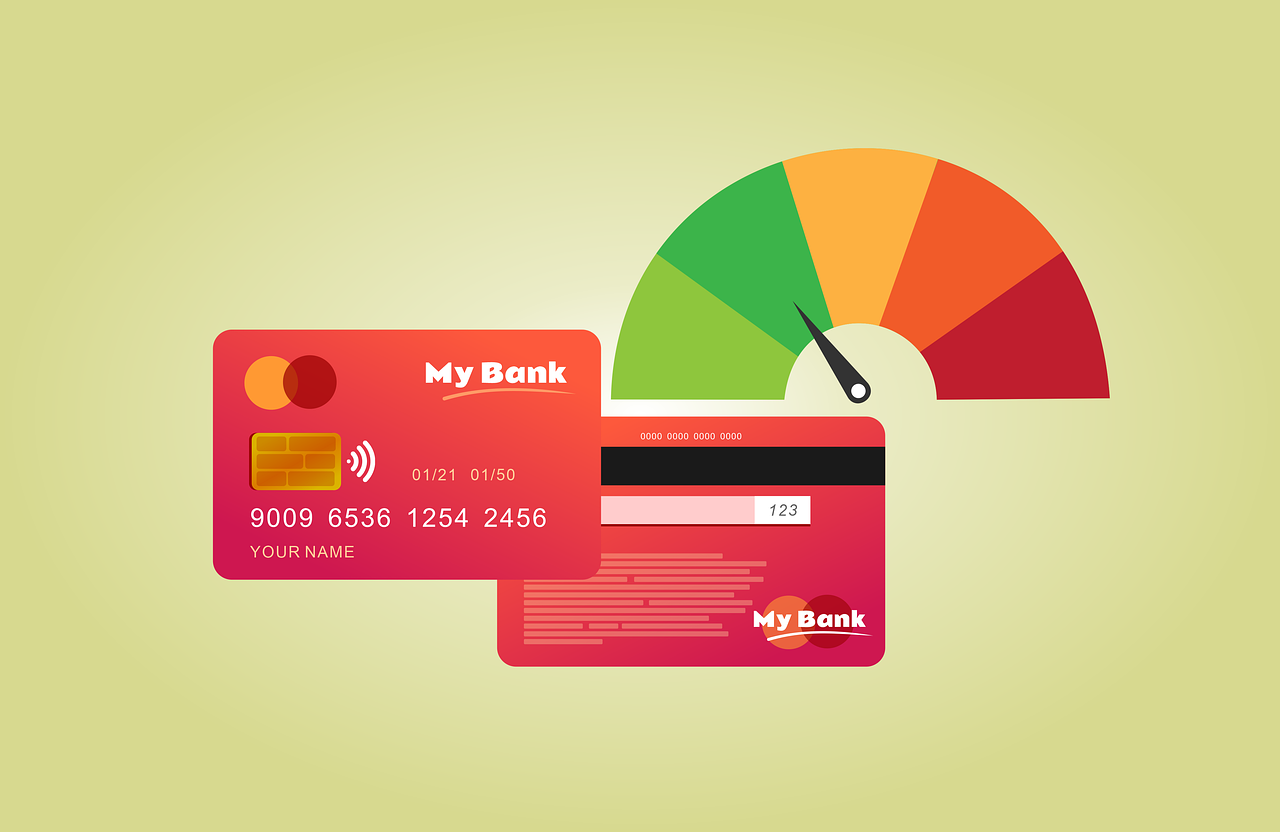Imagine the excitement of finally purchasing your dream home, but then being met with disappointment as you realize your credit score is holding you back. As frustrating as it may be, having a good credit score is crucial when it comes to buying a home. This article will explain why a good credit score is so important in the homebuying process and how it can affect your chances of getting approved for a mortgage loan. So, if you’re planning to embark on this exciting journey, buckle up and get ready to learn why your credit score deserves your attention.

1. Understanding Credit Scores
1.1 What is a credit score?
A credit score is a numerical representation of an individual’s creditworthiness. It is a three-digit number that is used by lenders to assess the likelihood of someone repaying their debts and to determine their eligibility for different types of credit, including home loans.
1.2 How is a credit score calculated?
Credit scores are calculated based on various factors, including payment history, credit utilization, length of credit history, types of credit used, and new credit applications. These factors are analyzed by credit bureaus, such as Experian, Equifax, and TransUnion, who use different algorithms to generate credit scores.
1.3 The range of credit scores
Credit scores typically range from 300 to 850, with a higher score indicating better creditworthiness. Lenders often categorize credit scores into different ranges, such as poor, fair, good, and excellent, to evaluate the risk associated with lending money to a borrower.
1.4 Key factors that influence credit scores
Several key factors can impact credit scores. These include payment history, which accounts for the largest portion of the score, as well as credit utilization, length of credit history, types of credit used, and recent credit inquiries. Maintaining a positive payment history and keeping credit utilization low are crucial for achieving a good credit score.
2. Qualifying for a Mortgage
2.1 The role of credit score in getting a mortgage
Your credit score plays a significant role in qualifying for a mortgage. Lenders use credit scores to assess the potential risk of lending to a borrower and determine the terms and interest rates they can offer. A higher credit score generally leads to more favorable mortgage options.
2.2 Minimum credit score requirements for home loans
Different mortgage programs and lenders have varying minimum credit score requirements. While some lenders may offer loans to borrowers with lower credit scores, a score of at least 620 is typically required to qualify for a conventional mortgage. Government-backed loan programs, such as FHA loans, often have more lenient credit score requirements, making homeownership more accessible for those with less-than-perfect credit.
2.3 Impact of credit score on interest rates
Credit scores also play a significant role in the interest rates offered on mortgages. Borrowers with higher credit scores are generally eligible for lower interest rates, resulting in significant savings over the life of the loan. A lower interest rate can translate to lower monthly mortgage payments and more affordable homeownership.
2.4 How credit scores affect mortgage approval
Credit scores greatly influence the approval process for mortgages. Lenders carefully evaluate credit scores to determine the likelihood of timely mortgage payments. A higher credit score not only increases the chances of mortgage approval but can also result in a smoother and quicker application process.
2.5 Utilizing government-backed loan programs
For borrowers with lower credit scores or limited down payment funds, utilizing government-backed loan programs can be a valuable option. Programs like FHA loans or VA loans often have more flexible credit score requirements and offer favorable terms, making it easier for individuals to qualify for a mortgage and achieve homeownership.
3. Interest Rates and Loan Terms
3.1 The relationship between credit scores and interest rates
Credit scores directly affect the interest rates borrowers qualify for on their mortgages. Lenders view borrowers with higher credit scores as less risky, allowing them to offer lower interest rates. Even a small difference in interest rates can have a significant impact on monthly mortgage payments and the overall cost of homeownership.
3.2 How credit scores impact loan terms
In addition to interest rates, credit scores also impact other loan terms. Borrowers with higher credit scores may have access to more flexible loan terms, such as shorter loan durations or lower down payment requirements. These favorable terms can help borrowers save money and build equity in their homes more quickly.
3.3 Cost savings with a good credit score
Maintaining a good credit score can result in substantial cost savings over the life of a mortgage. A higher credit score can lead to lower interest rates, which, when combined with favorable loan terms, can significantly reduce monthly mortgage payments. These savings not only make homeownership more affordable but also free up funds for other financial goals and expenses.
3.4 Long-term implications of interest rates
Interest rates not only impact current mortgage payments but also have long-term implications. A higher interest rate can mean paying more in interest over the life of the loan, resulting in a higher overall cost of homeownership. By securing a lower interest rate through a good credit score, homeowners can potentially save tens of thousands of dollars over the years.
3.5 The importance of comparing mortgage offers
It is crucial for prospective homebuyers to shop around and compare mortgage offers from different lenders. Even a small difference in interest rates or loan terms can have a significant impact on the overall cost of a mortgage. By considering multiple offers, you can ensure you are getting the best possible terms and use your good credit score to your advantage.
4. Financial Benefits of a Good Credit Score
4.1 Access to lower interest rates
One of the primary financial benefits of having a good credit score is access to lower interest rates. With a higher credit score, you are more likely to qualify for loans with lower interest rates, whether it’s a mortgage, car loan, or personal loan. These lower interest rates can save you a substantial amount of money over time, allowing you to invest, save, or spend on other important financial goals.
4.2 Lower monthly mortgage payments
By securing a lower interest rate through a good credit score, you can enjoy lower monthly mortgage payments. This can significantly impact your monthly budget, freeing up funds for other expenses or savings. Lower monthly payments also reduce the risk of financial strain and increase your ability to comfortably manage your mortgage payments.
4.3 Increased borrowing capacity
A good credit score not only increases your chances of loan approval but also expands your borrowing capacity. Lenders are more likely to lend higher amounts to borrowers with higher credit scores, as they are viewed as more reliable and less risky. With an increased borrowing capacity, you can pursue larger real estate investments or finance significant home improvements.
4.4 Opportunities for better loan terms
Lenders often reserve their best loan terms for borrowers with excellent credit scores. These favorable loan terms may include lower interest rates, longer loan durations, or reduced down payment requirements. By having a good credit score, you open doors to these opportunities and can take advantage of more flexible and advantageous loan terms.
4.5 Unlocking more affordable housing options
Having a good credit score can also open up more affordable housing options. Landlords often consider credit scores when selecting tenants, and a higher credit score can improve your chances of securing a desirable rental property. Additionally, with a good credit score, you may qualify for special housing programs or incentives that provide affordable homeownership opportunities.

5. Qualifying for Other Financing Needs
5.1 Impact of credit score on other types of loans
In addition to mortgages, credit scores play a crucial role in qualifying for other types of loans, such as auto loans, personal loans, and student loans. A good credit score increases your chances of loan approval and allows you to access better terms and lower interest rates across these different financing needs.
5.2 Availability of personal loans for home improvements
With a good credit score, you may have access to personal loans specifically designed for home improvements. These loans can help you finance renovations, repairs, or upgrades to your home, increasing its value and improving your living conditions. A good credit score can make it easier to qualify for these loans and secure favorable terms.
5.3 Obtaining favorable terms for home equity loans
Home equity loans allow homeowners to borrow against the equity they have built in their homes. Having a good credit score can increase your chances of qualifying for a home equity loan and help you secure more favorable terms, such as lower interest rates and higher borrowing limits. This can be beneficial for funding major expenses, such as home renovations or educational expenses.
5.4 Accessing other lines of credit with ease
Beyond traditional loans, a good credit score provides easier access to other lines of credit, such as credit cards, lines of credit, and overdraft protection. These credit options can provide additional financial flexibility and emergency funds when needed. By maintaining a good credit score, you can take advantage of these credit products and manage your finances more effectively.
5.5 Potential advantages in real estate investing
For those interested in real estate investing, a good credit score can be a significant advantage. It allows you to secure financing for investment properties or obtain funding for renovations and improvements. With a good credit score, you can unlock opportunities for building wealth through real estate and take advantage of potential tax benefits or rental income.
6. Building and Maintaining a Good Credit Score
6.1 Importance of responsible credit card use
Responsible credit card use is a crucial aspect of building and maintaining a good credit score. Paying credit card bills on time, keeping balances low, and avoiding excessive debt can help establish a positive credit history and demonstrate responsible financial behavior. Using credit cards wisely can contribute to a higher credit score and open up a range of financial opportunities.
6.2 Timely payment of bills and debts
Consistently making timely payments on all bills and debts is essential for maintaining a good credit score. Late payments can heavily impact your credit score, resulting in negative marks on your credit report. By prioritizing payments and avoiding delinquencies, you can ensure that your credit score remains strong and reflects your responsible financial behavior.
6.3 Managing credit utilization effectively
Credit utilization, which measures the amount of available credit you use, is a significant factor in calculating credit scores. It is recommended to keep credit card balances below 30% of the credit limit to maintain a good credit score. By managing credit utilization effectively and paying off debts, you can demonstrate your ability to responsibly handle credit and improve your credit score.
6.4 Avoiding excessive credit applications
Frequent credit applications can signal financial instability to lenders and negatively impact your credit score. Each credit application results in a hard inquiry on your credit report, which can lower your credit score temporarily. It is important to be selective when applying for credit and only do so when necessary to avoid unnecessary damage to your credit score.
6.5 Regularly monitoring credit reports
Regularly monitoring your credit reports allows you to stay informed about your credit status and identify any errors or fraudulent activity. By reviewing your credit reports, you can ensure that the information is accurate and take necessary steps to correct any discrepancies. Monitoring your credit reports also allows you to track your progress in building and maintaining a good credit score.

7. Steps to Improve a Poor Credit Score
7.1 Identifying and understanding credit issues
The first step in improving a poor credit score is to identify and understand the underlying credit issues. This involves obtaining a copy of your credit report from each of the major credit bureaus and reviewing it for inaccuracies, late payments, high credit utilization, or any negative marks that may be impacting your credit score.
7.2 Creating a budget and financial plan
Creating a budget and sticking to it is crucial for improving a poor credit score. By tracking income and expenses, you can identify areas where you can cut back on spending and allocate more funds towards paying off debts or making timely payments. A comprehensive financial plan helps you prioritize debt repayment and financial goals.
7.3 Reducing outstanding debts and balances
One of the most effective ways to improve a poor credit score is to reduce outstanding debts and balances. By focusing on paying down debts, you can lower credit utilization and demonstrate responsible financial behavior. This gradual reduction in balances can have a positive impact on your credit score over time.
7.4 Establishing a positive credit history
Establishing a positive credit history is crucial for improving a poor credit score. This can be done through responsible credit card use, making timely payments, and avoiding late or missed payments. Over time, consistent positive credit behavior and responsible financial habits will contribute to a higher credit score.
7.5 Seeking professional credit counseling assistance
For individuals struggling with a poor credit score, seeking professional credit counseling assistance can be a valuable option. Credit counselors can provide guidance on debt repayment strategies, budgeting, and credit management. Their expertise and advice can help you navigate the path to rebuilding your credit and improving your financial situation.
8. The Long-Term Impact of a Good Credit Score
8.1 Building a solid financial foundation
A good credit score serves as a foundation for a solid financial future. It opens up opportunities for favorable loan terms, low interest rates, and access to various credit options. By maintaining and improving your credit score, you are building a strong financial foundation that can support your long-term financial goals.
8.2 Easier access to future credit and loans
With a good credit score, you can enjoy easier access to future credit and loans when needed. Lenders are more likely to approve loan applications and offer competitive terms and rates. Whether you plan to finance a new car, start a business, or pursue another significant financial goal, a good credit score will be an asset in securing the necessary funds.
8.3 Favorable terms for future mortgages
A good credit score can lead to more favorable terms for future mortgages. As you build a positive credit history and maintain good credit, lenders will be more willing to offer lower interest rates, reduced down payment requirements, and flexible loan terms. These advantages can make homeownership more affordable and provide opportunities for refinancing or upgrading to a larger home.
8.4 Lower insurance premiums
Having a good credit score can also lead to lower insurance premiums. Insurance companies often consider credit scores when determining policy rates because higher credit scores are associated with a lower likelihood of filing claims. By maintaining a good credit score, you can potentially save money on homeowners insurance, auto insurance, and other types of insurance.
8.5 Enhanced overall financial well-being
Ultimately, a good credit score contributes to enhanced overall financial well-being. It allows you to qualify for better financial products, secure loans and credit at lower interest rates, and enjoy more affordable borrowing options. A good credit score provides peace of mind and financial stability, enabling you to achieve your long-term financial goals and improve your overall quality of life.

9. The Role of Credit Repair
9.1 Understanding the credit repair process
Credit repair is the process of identifying and fixing errors, inaccuracies, or discrepancies on your credit report. It involves requesting investigations, providing documentation, and following up with credit bureaus and creditors to rectify any issues. Credit repair aims to improve the accuracy and fairness of your credit report, which can lead to a higher credit score.
9.2 Working with reputable credit repair agencies
If you decide to pursue credit repair, it is essential to work with reputable credit repair agencies. These agencies specialize in navigating the credit repair process and have the knowledge and expertise to effectively dispute and resolve credit report issues. Research and choose a reputable agency that follows ethical practices and has a track record of success.
9.3 Rebuilding credit after negative events
Credit repair often goes hand in hand with rebuilding credit after negative events, such as bankruptcy or foreclosure. Rebuilding credit involves implementing responsible financial habits, making timely payments, and reducing outstanding debts. Over time, as you demonstrate positive credit behavior, your credit score will gradually improve, increasing your access to better financing options.
9.4 Evaluating the cost-benefit of credit repair
Before pursuing credit repair, it is important to evaluate the cost-benefit ratio. Consider the potential impact on your credit score, the likelihood of success, and the associated costs of working with a credit repair agency. While credit repair can be beneficial for individuals with significant errors on their credit reports, it may not be necessary or cost-effective for everyone.
9.5 Exercising caution in credit repair decisions
When considering credit repair, it is important to exercise caution and be aware of potential scams. Be wary of companies that promise to quickly fix your credit or guarantee specific results. Legitimate credit repair takes time and effort, and there are no guarantees of specific outcomes. Research and choose reputable credit repair options, and always be cautious of companies that request upfront payment or make unrealistic claims.
10. Conclusion
10.1 Recap of the importance of a good credit score
Having a good credit score is of utmost importance when buying a home. It determines the terms, interest rates, and loan options available to you. A good credit score allows you to qualify for lower interest rates, save money on monthly mortgage payments, and access more favorable loan terms. It also expands your borrowing capacity and opens up opportunities for more affordable housing options.
10.2 Steps to take for improving or maintaining credit
To improve or maintain a good credit score, it is important to prioritize responsible credit card use, make timely payments, manage credit utilization effectively, avoid excessive credit applications, and regularly monitor credit reports for errors or discrepancies. Building and maintaining a good credit score requires discipline and financial responsibility but offers long-term benefits for your financial well-being.
10.3 The long-term advantages of a good credit score when buying a home
A good credit score has long-term advantages when buying a home. It not only helps you qualify for favorable mortgage terms and interest rates but also enhances your overall financial well-being. A good credit score allows for easier access to future credit and loans, potentially results in lower insurance premiums, and provides opportunities for refinancing or upgrading your home. By prioritizing and maintaining a good credit score, you are setting yourself up for a solid financial future.



